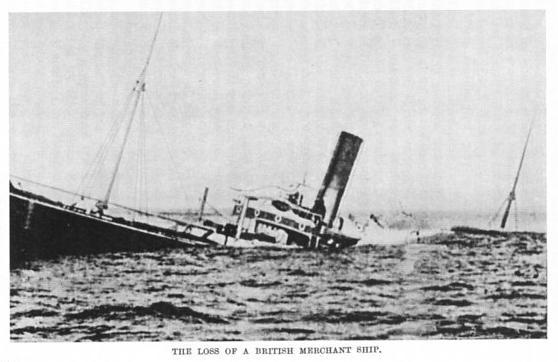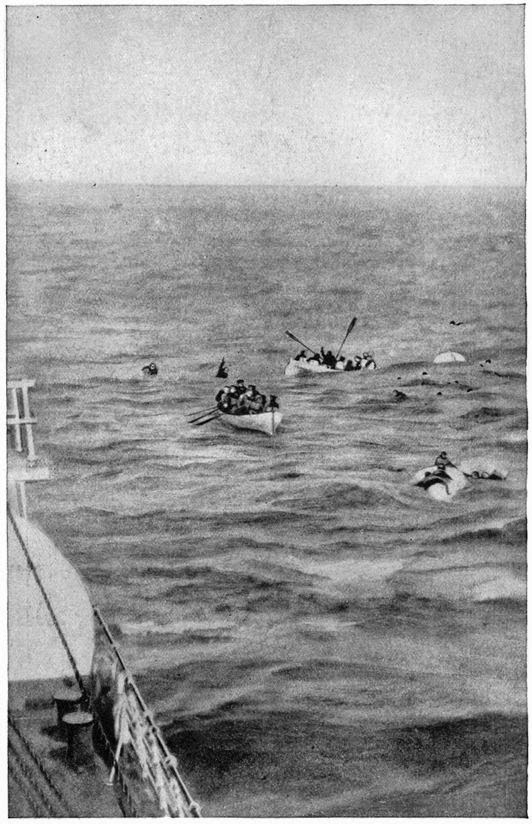Germans Step Up Use of U-Boats; An ‘Ungentlemanly Weapon.’
First American Killed in the War.
Special to The Great War Project
(27-30 March) On March 28 precisely a century ago, the first American is killed in the First World War.
His name is Leon Thrasher. He is a mining engineer, and he drowns when a German submarine torpedoes a passenger-cargo ship he is traveling on – the Falaba – departing from Liverpool, bound for West Africa.
According to historian Martin Gilbert’s account of the incident, the ship is hit by a torpedo and sinks in eight minutes. “Of its 242 passengers and crew, 104 were drowned.”
“The incident,” writes historian Arthur Link, “forces the American leaders to consider the submarine challenge as it endangered all American life, not merely American lives on American ships, in the war zone.”
The attack on the Falaba signals a change in war strategy at sea.
“Despite the risk of alienating neutral America,” writes Gilbert, “the German Navy intensified its submarine campaign against merchant ships.” It appears the German submarine campaign in the Atlantic is about to widen significantly. From now on, it may hold nothing back whatever flag ships are flying, whoever it is believed on board.
“There can be no doubt,” writes historian Link of the Falaba attack, “that the commander of the U-28 fired his torpedo knowing that it would cause the death of many passengers.” Several accounts of the incident report the commander of the submarine coming on deck and “jeering at the drowning passengers.”
At the beginning of the war, the submarine is considered “a novel weapon” according to historian Michael Neiberg. “All sides had them, but the Germans made the most use of them as an offensive weapon.”
The British Navy commands dominance of the seas, and the Germans hope a widening U-boat campaign will overcome that dominance. “Submarines promised to revolutionize naval warfare,” observes Neiberg.
They do not easily conform to the generally respected rules of naval warfare. There is no boarding target ships for inspection, nor taking innocent civilians on board. They can approach target ships silently and give no warning. Now inevitably more civilians will be killed. And that could bring neutral nations, especially the United States, into the war.
And in fact the death of Leon Thrasher in the Falaba forces America’s President Woodrow Wilson and his key advisers to confront the German war at sea like never before.
Wilson’s initial conclusion? The commander of the U-boat has violated international law.
Submarines become known as the “ungentlemanly weapon,” historian Michael Neiberg reports. “With enough submarines and crewmen, [the Germans] believed they could starve Britain into submission.”



Stunning news. Looks like the initial loss of traditional military rules of engagement began here.